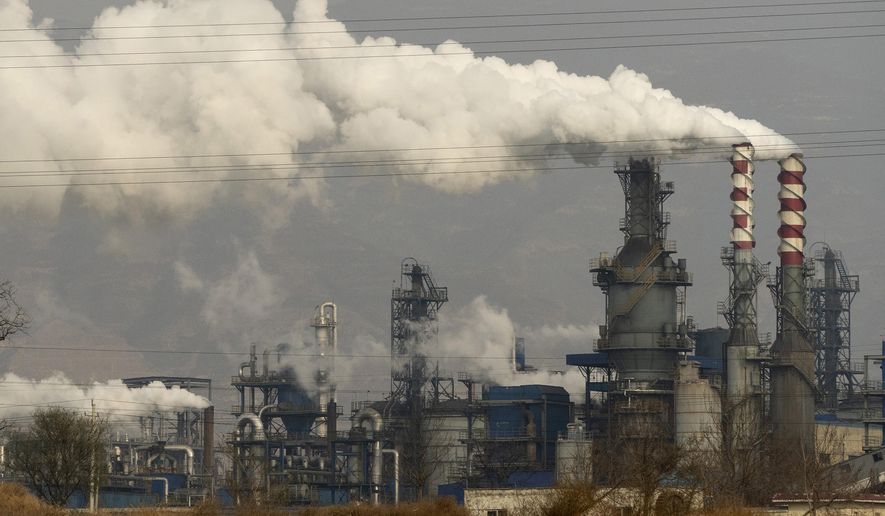OPINION:
China’s military grows stronger every day. And American taxpayer dollars are helping to fund its expansion.
In California, top officials have allowed the investment of more than $3 billion to fund China’s Belt and Road Initiative, where they debt trap financially strapped countries. The Initiative expands the Red Dragon’s footprint worldwide with loans to build infrastructure, including deep-water ports and airports in other countries. When the loans can’t be repaid, China could use these port assets to project military power in a modern-day version of the Russians in Cuba.
Investing in Chinese companies that, in turn, support its military is a lousy investment for our self-interests. China’s naval forces are now 15% larger than the U.S. Navy. By 2030, that gap will widen as China is expected to have 65 more warships than the U.S. If you haven’t noticed, Taiwan, an island nation coveted by the communist government, is a stone’s throw from the mainland. And Taiwan supplies about half the worldwide supply of semiconductors—a critical component for modern technology.
China already has significant control of critical goods imported by America, including many pharmaceutical drugs. China also controls a majority of rare earth minerals used to manufacture high-tech products.
The $3 billion investment was made with funds from the California Public Employees’ Retirement System (CalPERS). Of the $3 billion, more than $450 million was invested in 14 Chinese companies blacklisted by the Trump administration over ties to the Chinese military.
Chinese companies are notorious for lack of transparency. They don’t play by the same accounting rules as American companies. In one recent case, China-based Luckin Coffee, listed on the NASDAQ, was caught fabricating its sales figures. Investors got whacked. And that was an American listing. No one should trust the metrics coming out of companies in mainland China where fraud is prevalent.
There’s an additional investment risk when you get in bed with the communist authorities. That regime abruptly issued new regulations this summer clamping down on tech companies. The result was a quick and precipitous drop in share prices. In a country where the government is omnipotent, this can happen at any moment.
Targeting Chinese military-linked companies is one of the few bipartisan agreements in Washington. After President Trump blacklisted companies tied to the Chinese military, President Biden later expanded it to cover more.
As much as $4 trillion are held in state and local government pension funds throughout the U.S. And investments in Chinese companies aren’t a trend exclusive to California. Many states, including Rhode Island, New York, and Florida, have investments in Chinese companies.
Gov. Gavin Newsom has mandated the divestment of CalPERS from tobacco companies and required that CalPERS favor green investments. Why not a broad-based China divestment strategy by California and all U.S. pension funds?
Arizona State Treasurer Kimberly Yee announced that state funds would be divested from Unilever, the parent company of Ben & Jerry’s, because of the ice cream retailer’s decision to boycott Israel. Yee stated, “I will not allow taxpayer dollars to go towards anti-Semitic, discriminatory efforts against Israel.” New Jersey recently made a similar announcement, and other states are evaluating divestment options, including New York, Florida, and Texas.
Yet China, the globe’s largest polluter and exporter of fentanyl, not to mention a human rights abuser, remains unscathed by our state actors.
It’s time for them to act. If divestments can be made against woke ice cream companies in Arizona or tobacco companies in California, certainly a divestment from China is palatable.
While individuals can choose to invest as they see fit, public officials should embrace American interests as much as they value a return on investment. There are plenty of American companies that don’t support State Evil.
Americans typically feel powerless to affect big government policy, but they can make a difference in this arena. Ask—no, demand—of any pension where your retirement money is invested to disclose if they support Chinese companies, and if so, why? If you need help getting this information, contact the American Security Institute at ChinaOwnsUs.com.
• Richard Berman is the president of Berman and Company, a public affairs firm in Washington, D.C.




Please read our comment policy before commenting.